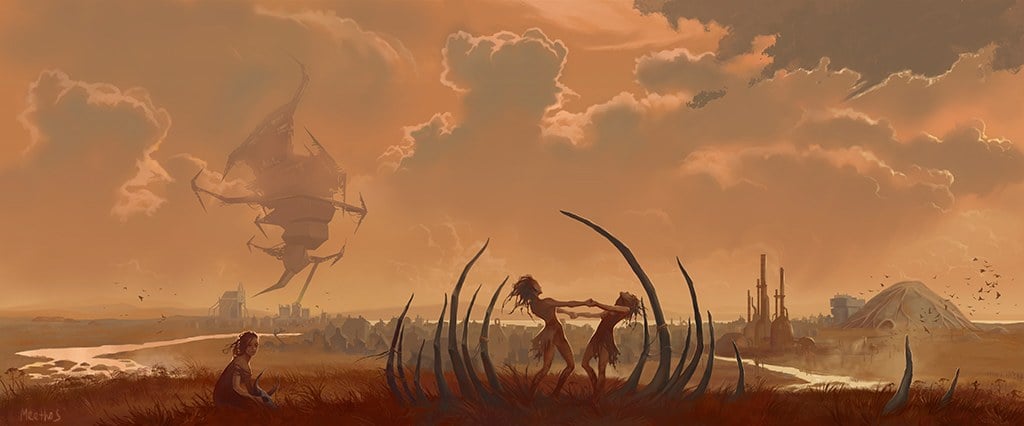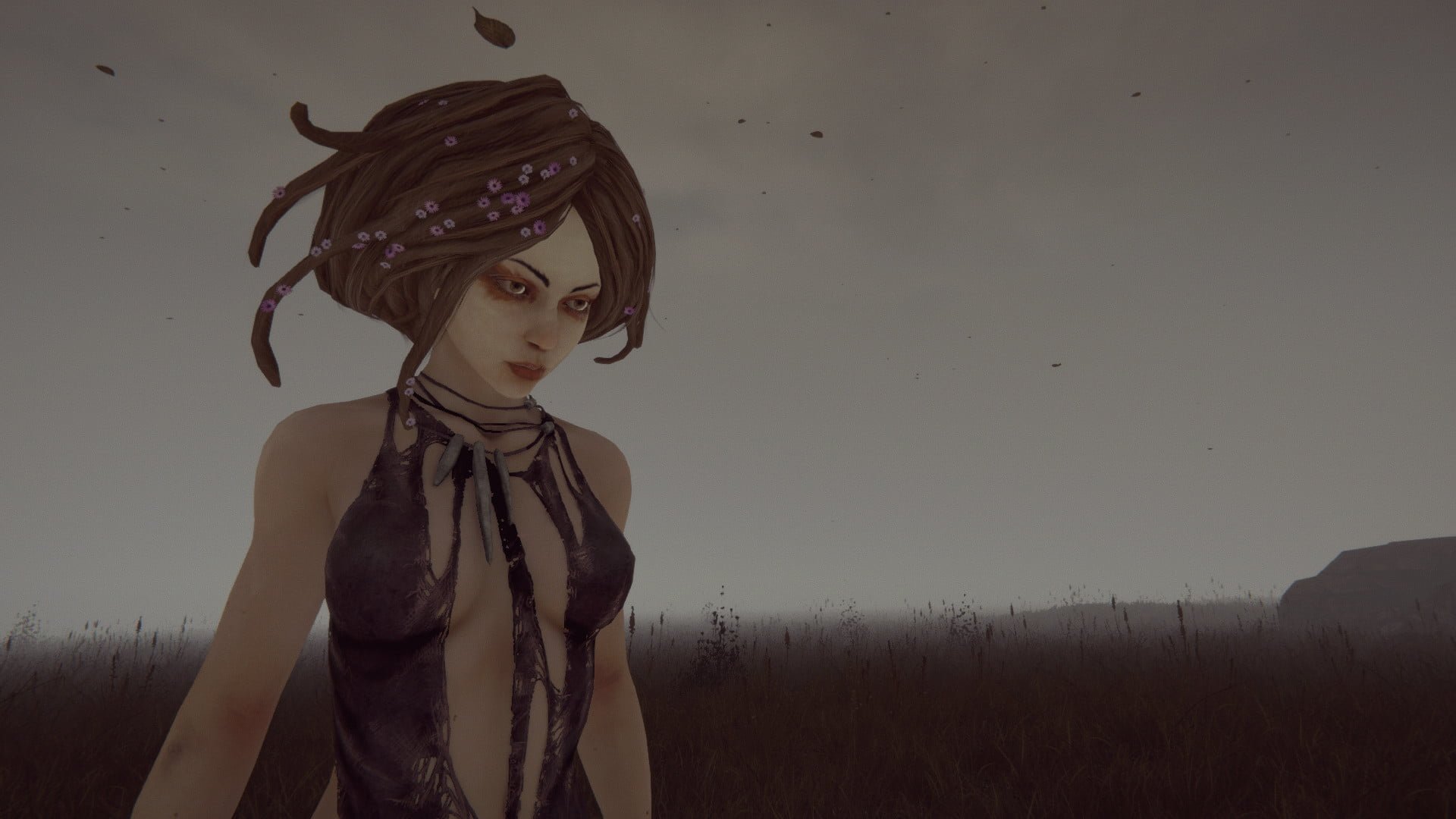In Pathologic 2 the writers from Ice-Pick Lodge have added a lot of new steppe words which we didn’t see in the original game. I think a lot of us would like to know the meaning of these words used by the nomadic people of the Kin for deeper understanding of the game’s world and its lore. This is the vocabulary of these words and phrases for easy and handy use via Steam overlay during your playtime.
Word of the Kin & Steppe Guide
A
Abgai/Abgay(B) = elder sister, sometimes can be referred to elders in general.
Aba(B) = father, dad, daddy.
Aydahan(B) = fear, horror. In the game: Aydahamne(G) = probably something like fearsome, fear-inspiring.
Aman/Amahn(B) = a mouth, lips
Akhar(B) = short, a short one. In the game: Judging by the context (Rubin was referred to as one, Artemiy was referred to as one in the Abattoir and later) it’s closer to something like an upstart. Or someone who tries to be something that they have no rights/abilities to be. Or the one who got it all wrong. And short of naturally high intelligence to boot.
Akshai(?) – ?
B
Be = I
Be khara = I see, I observe
Bide(B) = we -> Bite(G) = We.
Bite Kharaan = We see, or “behold, everyone”
Bayarlaa(B) = thank you
Bayartay(B) = good bye (on D11 there’s probably a typo in the text: bayatay instead of bayaRtay)
Bai(B) = 1. stop. Imperative form of baiha(B) – to stop 2. In the game it seems it is used as a part of an exclamation: Yamar berkhe basaghan bai! = What a wonderful girl!
Booha(B) = a bull.
Buha-noyon(G) = auroch. -> Buha = Booha(B); Noyon(B) = prince, ruler, lord
Berkhe(B) = 1. Experienced, capable, very good, best 2. Hard, heavy.
Basaghan(B) = a girl, a maid, a bride
Beshe(B) = 1. Other 2. not
Buzarlaha(B) = to spoil, to desecrate
barbaadai(B) = a thumb
Bagshaa(G) -> Bagsha(B) = a teacher
Bohir(B) = curved, humpback
Boleesh(G) -> closest: boleekho(B) = drop it, stop it. Boleekhty(B) = Enough! Leave it at that!
Bolokho(B) = to become, to transform, to ripe
Boddkho(G) = Earth (Pronounced Bodd-Ho)
BYY alysh (?) = don’t kill
Bosooly(?) = probably diminutive for a bull.
Boos(G) (Pronounced Boh-os. Glottal stop could do too: Bo’os. Changing it to something like Bous like what Sul Matul does would do too. It’s just that it’s not a long o) = Either someone bull-like or a master of bulls.
Bos(Latin) = a bull
Bos Turokh(G) = procreator of the world.
Baarkhane(G) = ?
Baygalday(?) = ? (PROBABLY means “It burns!”. Closest words found: galdaha(B) – to burn. galdama(B) – flaming. galdalga(B) – the burning)
D
Duugai (B) = silent
Dee(?) = ? (Probably from Yakut language)
E
Emshen(B) = a Doctor, a Healer
Erdem(B) = an educated one
Eseghe(B) = a father. Esegher(G) (sometimes Essegher) — judging by how it is used in the game I’d say it is closer to a patriarch.
Ezhe(G) -> Ezhi(B) = a mother, mommy.
Ekhener(B) = a woman. Ekhene(G)
Ereebshe(B) -> a form of Erelge(B) – arrival, coming
-en(G) -> seems to be a prefix used to express endearment or respect; it is used by Maria when she speaks to the Bachelor in the original game. I.e. “en-Daniil.” [Preston Makoto Hunter]
Ene(B) = This
G
Geeshebshe(B) = ? (I was able to find the word itself via google, but not a translation)
H
Hoog-zaya(?) -> closest: zayaan(B) = a fate;
I
Ime Beshe -> Beshe(B) = not. I wasn’t able to find what Ime means; Context plainly suggests that together with Beshe it is something like “It is not so” or “No way”.
K
Kholboon(B) = a link, to establish a link, a connection. A linked one.
Kharaha(B) = to watch, to observe
khayaala(B) = a second cousin. In the game I guess the best fit would be “a fellow kinsman”.
Khodo(B) = through
Khodo Khara = it is clear, could be clearly seen
KhYn(B) = a person, a human being
Khetey(G) = a sister-elder
Kharaa(B) = a sight, an outline. In the game: to plumb the depths
Kharanab(?) = ? (Probably, past tense of Khara)
Kheerkhen(B) (sometimes Khoorkhen) = dear
Khatar naada(G) -> Khatar naadan(B) = the dances;
Khayud(G) = great troubles
KhYbYYn(B) = a son
Khyumkhan(B) = a nail. (Goes as “Hюmhan” in the game. I believe there are typos because a) there is Russian letter ю (pronounced as English “you”) left un-transliterated; b) The spelling goes against all the transliteration conventions the game upholds: there is H instead of Kh; c) Those kind of things rarely happen to other words, if at all.)
Khooloi(B) = a throat
khandro(?) = ?
Khachirkhel(?) = strange, impossible things.
KhYYr(B) = a corpse, a tomb
Khelekhe(B) = to talk, to tell
Khuugedi(G) -> Khuuged(B) = children
Khurganuudne(G) = from Khurga(B) – fingers. Second part of the word is unknown.
Khatange(G) = the Kin, people. plural form of Khatanger.
Khatanger(G) = a person of the Kin. Closest words in Buryat are: Khatan(B) = queen, princess;
Khatanghir = 1. Dry 2. Skinny 3. A dried spot on something. While it is possible that there are some links between Khatanger and those words, I suspect it is simply one of the “early” word, the one which was made up or modeled on to sound Mongol-ish, and before the idea to actually use real languages to their full strength.
M
Mounkhe(B) = eternal
Myy(B) = bad
Mete(G) = a layer.
Medrel(G) = nerves?
Menkhu(G) = emshen on steroids. Leader of the Kin, knower of the lines, witness to the traces of the supernatural and to other tragic events.
N
Nara(B) = the sun, sunlike.
Noukher(B) = a friend (In the game = a partner)
Noukherne(G) = a friend…ly one?
Naydamtay(G) -> Naydamtaygaar(B) = surely, reliably
Nuutag(?) = ?
Nunehen(?) = ?
Naayze(?) = ?
O
Oshokho(B) = to set out
Ontokho(G) -> Ontokhon(B) = a fairytale
Oylgono(G) -> closest: Oylgoso(B) = conception, understanding. Oylgomzho(B) = a concept, point of view. Oylgoho(B) = to understand.
Be Oylgono ugyb(?) = In the game the next phrase after that one suggests.


I love this glossary! It’s one of the best I’ve found. Is there a part two for the rest of the alphabet?
kheerkhen is also used as a term of endearment in the game